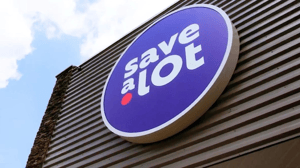For grocers, providing value just got complicatedFor grocers, providing value just got complicated
FMI survey reveals shoppers expand their perception of what’s valuable

TOP TAKEAWAYS
75% of shoppers expressed concern with rising food prices
41% of shoppers are purchasing more store brands
47% of millennials say that they are willing to spend more money to avoid shopping at multiple stores
The Food Industry Association (FMI) released its latest survey of grocery shoppers which unveils that the meaning of “good value” is becoming more complex as consumers navigate grocery aisles.
Shoppers are no longer just looking at value from just good prices, they have expanded their perception of value beyond price — citing they want quality, relevance, experience, and convenience too when they are making decisions.
The analysis comes as part of FMI’s U.S. Grocery Shopper Trends 2023 series, where it revealed several common considerations for how shoppers think about value, for both food and beverages, as well as the stores and channels they choose to shop.
While inflation is slowly edging down in April, it is still being felt by consumers “bucking the long-held definition of value being measured by a simple equation of higher quantity at a lower price,” according to the study.
Likely because it is hard to ignore the unprecedented increase in prices over the last year in the overall food-at-home segment (including the grocery store and supermarket food purchases), which rose by 13% over the previous 12 months.
So, what is being taken into consideration now when looking at a good value? The survey results point to quality, relevance, experience, and convenience.
“Understanding how dramatically grocery shoppers are expanding their definition of value is imperative for the food industry as consumers adjust their purchasing patterns and habits amid continued economic uncertainty,” said Leslie Sarasin, president and CEO of FMI. “This report highlights that price is not necessarily the be-all-end-all when it comes to shopper perceptions of value, and also that the notion of value itself has become an increasingly more complex, subjective, and even personal calculation.”
While shoppers say that getting good value is a priority across all incomes and demographics, younger shoppers are driving the shifting definition of value toward a more holistic measurement that goes beyond the traditional price-to-quantity ratio. Demographic explorations within the report revealed, for example:
62% of millennials increasingly say they prefer to minimize food waste by buying only what they need, a strategy that FMI notes speaks to relevance
Convenience and a pleasing shopping experience also are key drivers of value for younger shoppers:
47% of millennials say that they are willing to spend more money to avoid shopping at multiple stores
50% say they would spend more to shop at more pleasant stores, compared to just 16% of Baby Boomers who express those sentiments
Younger shoppers also are more willing to buy the best-quality items regardless of price
52% of millennials and 42% of Gen Zers express that sentiment, compared to just 22% of Baby Boomers
Increased deal-seeking is a strategy being used across the board among the 75% of shoppers who expressed concern with rising food prices. In fact, 41% of shoppers admit to purchasing more store brands.
Sarasin added, “There is a perception that shopping in-store is the best method for getting good value. This belief is shared across all generations, although younger shoppers are more flexible and more likely to see value in both online and in-store shopping, depending on the situation.”
FMI, The Food Industry Association, is a national trade association for the food industry, especially food retailers and wholesalers, in the U.S. FMI’s members include approximately 40,000 retail food stores and 25,000 pharmacies, representing an industry with $800 billion in annual sales.
About the Author
You May Also Like






